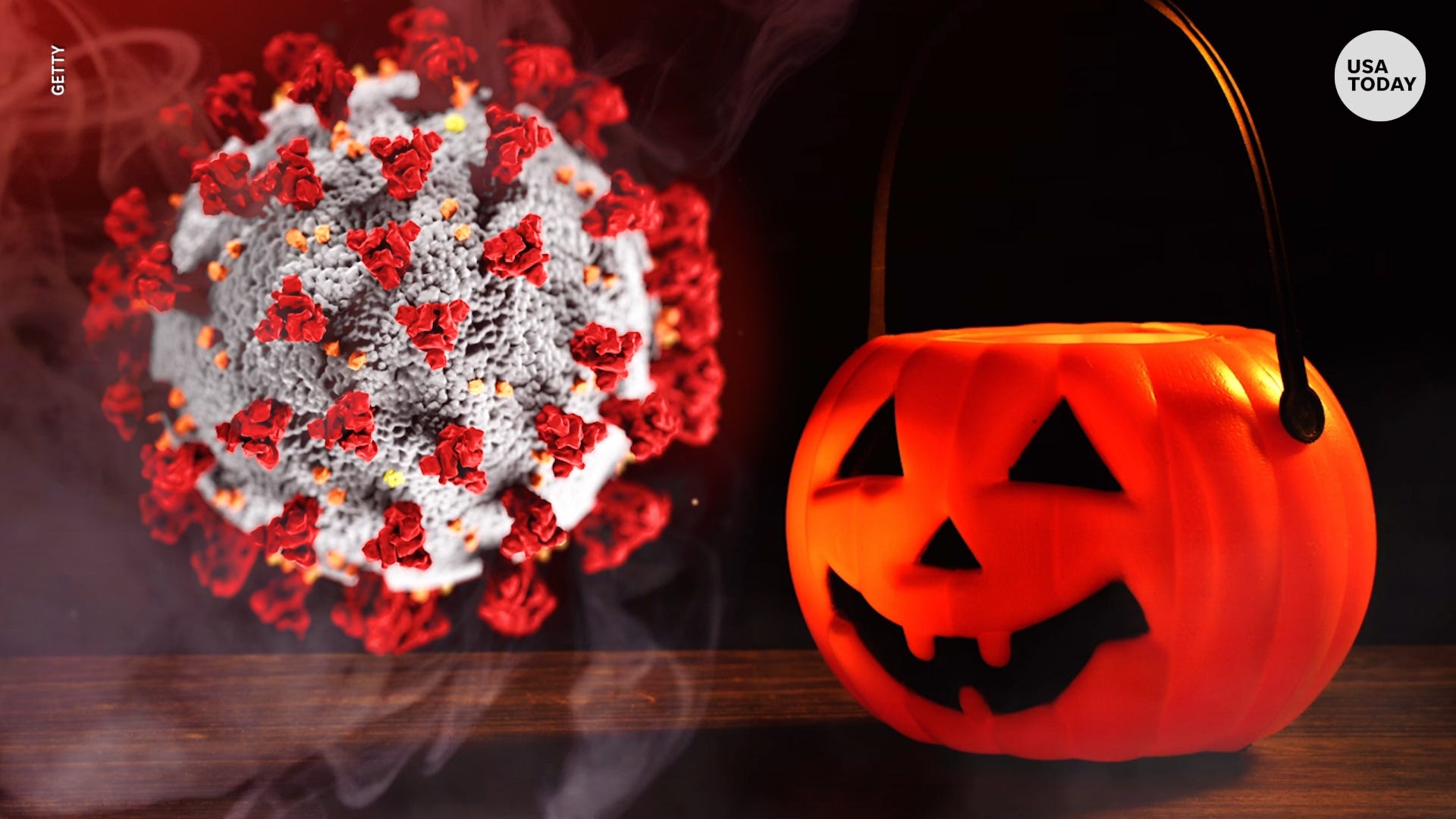Halloween: CDC recommends avoiding trick-or-treating

COVID: Will Halloween be the next event cancelled?
As the Halloween season approaches, people across the country may be asking themselves "should we stay, or should we go?"
The Centers for Disease Control and Prevention announced Monday it advises against traditional trick-or-treating this year amid the novel coronavirus. The recommendation came as part of a list of Halloween guidelines broken down by level of risk.
Door-to-door trick-or-treating, trunk-or-treating "where treats are handed out from trunks of cars lined up in large parking lots" and indoor parties or haunted houses are among the riskiest Halloween activities when it comes to preventing the spread of COVID-19, the CDC says. Others to be avoided include hayrides or tractor rides with others, visiting fall festivals in other communities and using alcohol or drugs, "which can cloud judgment and increase risky behaviors."
"Many traditional Halloween activities can be high-risk for spreading viruses," the CDC's holiday recommendations page says. "There are several safer, alternative ways to participate in Halloween. If you may have COVID-19 or you may have been exposed to someone with COVID-19, you should not participate in in-person Halloween festivities and should not give out candy to trick-or-treaters."
Some safer but still moderately risky activities include one-way trick-or-treating "where individually wrapped goodie bags are lined up for families to grab and go while continuing to social distance (such as at the end of a driveway or at the edge of a yard)," small, outdoor and socially distant costume parties, parades or Halloween movie nights and one-way, outdoor and socially distant haunted forests or pumpkin patches.
More: Is Halloween canceled?
For spooky events, such as watching a Halloween movie with people outside the household or visiting a haunted forest, the CDC recommends greater distancing "if screaming will likely occur."
"The greater the distance, the lower the risk of spreading a respiratory virus," it says.
Costume masks are not substitutes for protective face masks, the CDC says, but the two should not be used together – the combination can make it hard to breathe.
"Instead, consider using a Halloween-themed cloth mask," the CDC says.
How can people have fun on Halloween this year? By celebrating with members of their household, outdoors and distant from others, and partying virtually, according to the CDC.
Lower-risk activities include pumpkin carving either with members of your household or with friends outside and at a safe distance, watching a Halloween movie at home or having a virtual Halloween costume contest.
Families can try doing a Halloween scavenger hunt either “where children are given lists of Halloween-themed things to look for while they walk outdoors from house to house admiring Halloween decorations at a distance” or one “with your household members in or around your home rather than going house to house.”
The CDC included guidance for other fall and winter holidays, including Yom Kippur, Día de los Muertos, Diwali, Thanksgiving, Hanukkah, Christmas and New Year’s. In addition to the now-standard instructions to limit the number of people, wear masks, wash hands and gather outside if possible, the CDC suggests avoiding potluck-style meals (to minimize risk of spreading germs) and staying at home "as much as possible" for 14 days after attending a holiday gathering with anyone outside your immediate household.
tinyurlis.gdclck.ruulvis.netshrtco.de
